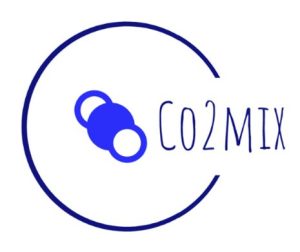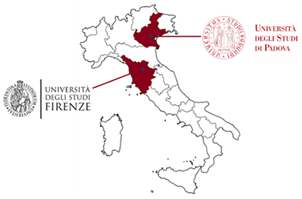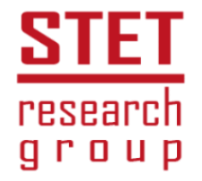
Project Title: Next generation inverse cycles using CO2 based mixtures as refrigerant
Coordinator: dott. Marco AZZOLIN – Dipartimento di Ingegneria Industriale-Università degli Studi di PADOVA
Partner: Università degli Studi di FIRENZE
Proposal: PRIN 2022 – Decreto Direttoriale n. 1385 del 01/09/2023
Duration: 30/11/2023 – 29/11/2025 (24 months)
Total budget: € 224.190,00
This project has been funded by the European Union – Next Generation EU

Summary
The project aims at developing efficient, eco-sustainable, and cost-effective CO2-based mixture inverse cycles for residential heating and cooling through the Lorenz cycle concept, potentially integrated, but not limited to, 5th generation district heating and cooling and renewable source inverse cycles.
The main goal of the project is to identify and study both at theoretical and experimental levels, environmentally friendly refrigerant blends that can be used in the new generation heat pumps and chillers. The investigation will target distributed inverse cycle utilization, working between fluids with finite heat capacity (i.e., low-temperature domestic hot water and space heating water) trying to minimize the irreversibilities of the system, through the proper matching of the heat capacities, providing a reduced work consumption and consequently higher sustainability.
To achieve this goal, the project undertakes a two-fold approach: system-level analysis (thermo-economic and environmental performance optimisation) as well as component level (focus on the heat transfer processes in two-phase, two-component flows) and foresees the following three main activities:
- Blends screening and global system modelling. Identification of the most promising CO2 mixtures with other refrigerants as hydrofluorocarbons and hydrocarbons, simulations of the global system, techno-economic and environmental analysis.
- Experimental heat transfer investigation of CO2-based mixtures. Measurements of the heat transfer coefficient and pressure drop during condensation and vaporization. Identification of the most suitable correlations to predict the heat transfer performance and to assess the effect of the additional mass transfer resistance.
- umerical study with CFD simulations. This kind of analysis will be a first-time approach that will enhance the knowledge of the two-phase, two-components field, paving the way for the effective uptake of the technolog.
The CO2MIX project aims to significantly contribute to the national and European energy and environmental policies, to promote the decarbonization of the heating and cooling sectors, and to contribute to a more resilient and competitive Europe.
Project Team
The CO2MIX project will put together the expertise of two research units, the University of Padova (UNIPD) and the University of Florence (UNIFI).

Contacts
Department of Industrial Engineering
University of Padova
Via Venezia, 1 – 35131 Padova (PD) – Italy
For enquiries about the project, please email the team at:

